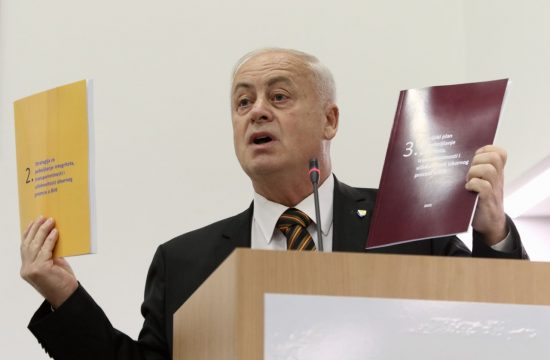Not enough energy is being invested into overcoming political stalemates in Bosnia and Herzegovina and, due to the way the country is set up, political leaders often only aim to appeal to members of their ethnic group, Austrian politician and former member of the European Parliament, Hannes Swoboda, told N1.
According to Swoboda, who is very familiar with the situation in the Western Balkans as he worked on EU expansion into the region, the situation in Bosnia and Herzegovina “could be better.”
He argued that many politicians all over the world, but perhaps even more so in the Western Balkan region and particularly in Bosnia, “too often only think about their well-being, their political group or their ethnic group or religious group, instead of thinking about what is necessary to improve the situation for all the citizens and what is necessary to keep the young people in the country.”
He explained that while he is in favour of people being able to travel freely, it is dangerous for the development of countries if too many of their highly qualified citizens leave.
Swoboda also commented on the 1995 Dayton Peace Agreement, which contains the country’s Constitution.
While the agreement “was a big success in many ways,” he said it defines the country’s difficult setup which is part of the reason why its politicians behave the way they do.
“If you have a country divided according to the ethnic line, whatever that means in that sense, politicians will only think ‘I have to win over my people’. That makes it very difficult,” he said, arguing that political leaders in Bosnia are not being held accountable for such behaviour.
He gave the example of Bosnia’s current Presidency Chairman and the leader of the ruling party in Bosnia’s Serb-majority Republika Srpska (RS) entity, Milorad Dodik.
Swoboda said he knows Dodik “quite well for many years” and that they had many discussions.
Whenever Dodik would speak about Republika Srpska seceding and possibly joining Serbia, nobody ever responded to him that such an effort will fail, Swoboda said.
He called the idea of the semi-autonomous entity seceding from Bosnia “fake news, just a fantasy,” explaining that Serbia will never accept the RS “because it would be the end of Serbia’s path to the European Union.”
He noted that such statements are only a “political game” and that Dodik’s narrative represents only one of many similar examples in Bosnia.
More on what Bosnia should do to ensure progress on its EU path, as well as on the negotiations between Belgrade and Pristina, the effects Joe Biden’s US Presidency could have on the region, as well as on various other regional issues, can be seen in the full interview above.





Kakvo je tvoje mišljenje o ovome?
Budi prvi koji će ostaviti komentar!